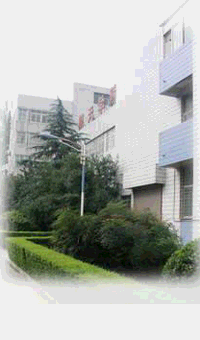1. Introduction
Department of Aerospace Control Engineering, formerly known as 803 teaching and research office, is the pioneer of the teaching and research of the vehicle detection, navigation, guidance and control. We have 40 staff, including 8 professors, 15 associate professors. About 150 people including undergraduates, postgraduates, and post-doctors are enrolled every year, and a number of them could choose the part-time program. One of our graduates was awarded as the “National Top Ten Youth”. At the meantime, we have taken on a lot of national aerospace research projects over years.
2. Disciplines
The department of Aerospace Control Engineering has two disciplines, one is Navigation, Guidance and Control, a branch of the first-level discipline Control Science and Engineering; the other one is Armament Launch Theory and Technology, a branch of the first-level discipline Armament Science and Technology. Both of these two disciplines are authorized to confer Master and Doctor Degree. Aerospace Control Engineering is a comprehensive Engineering Technology discipline, involving such subjects as Automatic Control, Electron, Aerodynamics, mechanics and machinery. The research covers plenty of areas, such as Control, Guidance, Detection, Navigation, Simulating Calculation, Information Processing and Experiment.
3. Education
The main target of the education is to cultivate the talents who are equipped with the ability of analyzing and designing flying vehicle guidance and control system. The cultivation of undergraduates focuses on the training of the fundamental knowledge and the basic skills. The undergraduates are expected to master the basic theories and the methods of the designing of flying vehicle guidance and control system, possess the basic quality to work in the field of flying vehicle control engineering. The cultivation of masters focuses on the understanding and application of flying vehicle guidance and control system, the learning of the scientific research method by participating in the practical research projects, and the ability to conduct research independently. The cultivation of doctors mainly focuses on their innovation, their ability to find and solve problems and put forward new theoretical methods, so that they will be qualified experts in designing flying vehicle guidance and control system.
4. Research
There are more than 100 research projects in the department, including “National Science Foundation”, “Major State Construction Project”, “863 High Technology Project and Aerospace Engineering”. More than 200 academic papers have been published on journals, as well as in academic conferences both in China and abroad. Many monograph and teaching materials have also been published. Moreover, more than 20 patents have been authorized.
The main research fields include:
Guidance and Control Systems of Flying Vehicle;
Advanced inertial navigation system;
Flight Control and Simulation Technology;
Theory and Application of Advanced Control;
Communication, measurement and control, Information Warfare Technology.
5. Laboratories
With the support of the “985 project” and “211 project”, several distinguished labs have been established, such as the physical simulation lab of space vehicles control, the semi-physical simulation lab of air vehicles guidance and control, the lab of steady control of inverted pendulum and the lab of route planning and control of robots. These labs play the critical important role in supporting the high quality teaching and research.
6. International Cooperation
The department of Aerospace Control Engineering has established sound cooperative relations with universities and research institutions in the United States, Britain, Netherland, Belgium, Canada, South Korea, Vietnam and Thailand, etc. Together with Delft University of Technology in Netherland, the department also set up Delft University of Technology- Northwestern Polytechnical University United Micro-satellites Research Center..
7. Major Achievements
One first prize and two second prizes are awarded on Reward of National Defense Science and Technology Progress ;
One first prize, one second prize and two third prizes are awarded on Reward of Universities of Science and Technology in Shaanxi province;
One first prize, two second prizes are awarded on Reward of Higher Education and Teaching Achievement in Shaanxi province.

